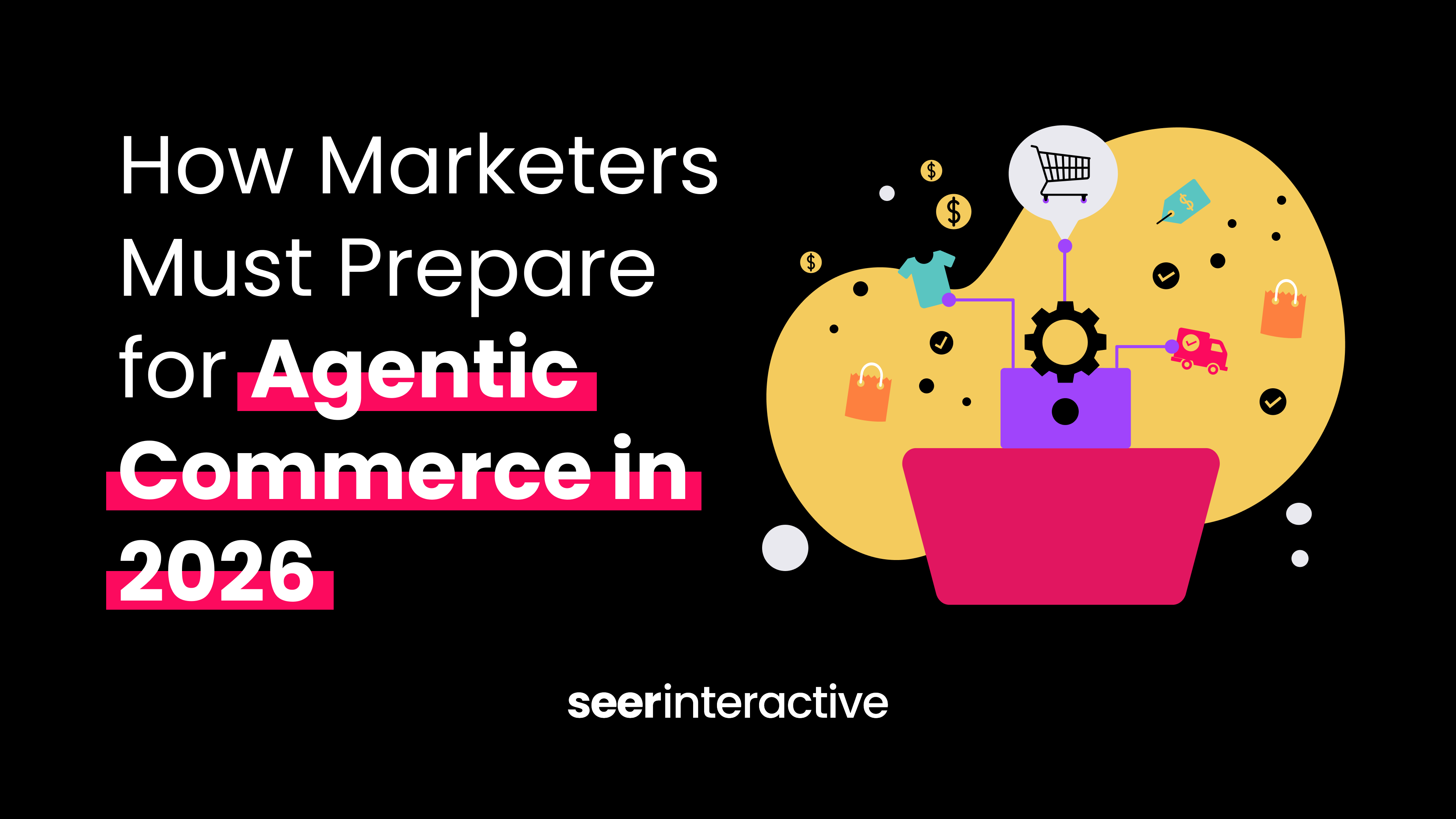Many people are now incorporating AI chat tools, such as ChatGPT and Bard, into their online research routines. As these tools continue to evolve and improve, we anticipate an increasing number of users joining this trend.
But when folks are using AI chat to search for products and services related to your brand, are you showing up? And, if not, what should you do about it?
In what scenarios do brands show up in AI chat results?
Visualize a member of your ideal audience. They’re a potential customer, patient, donor, subscriber – but they haven’t found your brand yet. They decide to use an AI chat tool. Their interaction may look something like this:
In this example, three brands are discussed in depth, including specific products and features.
By contrast, if this potential customer went to Google for help, using the query “best hiking boots for high arches on grand canyon hikes”, she might get lost among the busy SERP results, which displays no nothing to fit all her criteria:
In September 2023, Bing’s Fabrice Canel shared some information on when people are more satisfied with the results in search engines vs. AI chat. One theory proposes that traditional search engines are where users go to search when they know exactly what they want, while AI chat is the better choice for users who only sort of know what they want.
If this is true, this indicates two trends:
- Searchers who haven’t decided on your brand yet will find themselves in AI chat tools.
- Searchers who already know your brand will go to Google and Bing.
We’re going to see more people use AI chat tools for top-funnel, decision-driving searches like “best coffee machine for minimal counter space.” Meanwhile, we’ll still see plenty of users searching on traditional search engines for bottom funnel queries like “nespresso vertuo sale”
If you want to capture your audience at all stages of the funnel, your brand needs to show up in AI chat tool results.
So, how do I know if my brand is showing up in ChatGPT results?
Tracking your brand’s mentions in ChatGPT is easy using this free template. Use the template to explore over time and across multiple potential questions, how well your brand is showing up for the product-related questions you care about.
How do I get my brand to show up in AI chat results?
There’s a lot we don’t yet know about ChatGPT and how to influence its results, but here’s what we do know: AI tools use public data sources to generate their answers. These include things like books, news stories, Wikipedia, websites, social media, online forums, research publications, blogs, and more. We are also seeing AI search engines leverage Retrieval-Augmented Generation more (learn more from Wil Reynolds about that concept here).
To get your brand in AI chat results, your brand needs to be positively mentioned in these sources in ways that are related to your brand’s expertise. In short, you need PR, you need brand awareness campaigns, you need E-E-A-T, and you need optimized content.
Here are a few guiding questions to consider in order to improve brand visibility in AI chat tools:
- Is your website showing up for branded searches and branded People Also Ask answers? If you’re not owning the answers for common questions about your brand, you’re missing out on capturing potential customers. Instead, you’re letting another website control the narrative about your brand, increasing the likelihood that you won’t be seen as a trusted company.
- Do your product and service pages provide specific details to help searchers understand why they’d choose this product over another one? A benefit of AI chat results is that they can be tailored to the specific needs outlined in the prompt. If your page includes specific details, such as “these hiking boots are great for rocky terrain,” chat AI tools can surface those details for searchers with that specific need.
- Does your brand show up in articles and videos that review products? For searches like “best skincare products” and “mattress reviews”, the results are typically dominated by review sites that display brands and products. If your company isn’t showing up in these lists, you might not show up in AI chat results either.
- Is your brand sold on prominent retailer sites? For searches like “cordless leaf blower”, retailers like Home Depot and Amazon dominate the search results. If retailers show up for relevant searches and they don’t sell your brand, you might not show up in AI chat results.
- Is your website showing up for relevant non-brand searches at all levels of the funnel? If your competitors are outperforming you in the search results, it's likely they’ve built a better brand and more optimized website than you did. If search engines can recognize the value of your competitors, so can AI chat tools.
- Are people talking about your brand on social media? If people are speaking positively about your brand on social media, recommending it above your competitors, it’s likely AI chat tools will take this into consideration. If your social media reputation is poor or non-existent, consider investing in brand awareness campaigns both online and offline, including influencer partnerships.
- Does your brand show up in the news? Positive mentions about your brand from news outlets can go a long way in building trust with readers and search tools, like search engines and AI chat. If your brand never gets mentioned, or worse, only gets negative press, consider investing in PR campaigns.
- Are thought leaders at your company publicly representing your brand? Does your website highlight the expertise of these thought leaders? E-E-A-T, or experience, expertise, authoritativeness, and trustworthiness, continues to grow in importance for both search engines and AI chat tools. By encouraging your team members to showcase their expertise in interviews, social media, video, speeches, guest posting, etc., your brand can benefit, being seen as an authoritative and trusted company.
- Is your website crawlable by GPT’s bots? Check out Cori Shirk’s post here to learn more.
- Is your sitemap up to date, and with proper lastmod tagging? As AI chat tools look to websites to source answers, they want the most up to date information. When you update or create a page, adding dates and lastmod tags, plus updating sitemaps, helps search engines and AI chat tools find the most recent information on your site.
How should this fit into my greater marketing strategy overall?
You may have noticed that the recommendations we included above – investing in PR, building out brand campaigns, bridging partnerships with influencers, making product pages more helpful, answering branded questions – all of these are just good marketing strategies in general. But with limited internal resources, where should you start?
The exact answer requires research. Does your audience fall into the camp of “early adopters of AI”? Are your competitors significantly outperforming you in a particular area? Are there spaces with opportunity where your competitors are asleep at the wheel?
Explore the SERPs, play around with AI tools, see where your audience is converting, run tests, investigate social media platforms, and find out what makes the most sense for your context with your resources.

.png)
